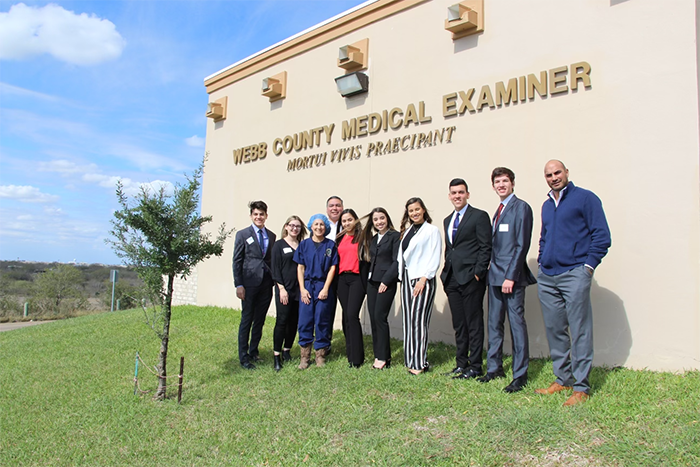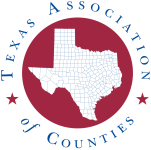County Magazine | July 31, 2023
How do we get kids interested in working for counties?

examiner's office. (Credit: Webb County)
Cindy Brown started working for Denton County during her last semester of high school in 1986 so she could learn how to type. It was for an elective course, and she had visions of becoming a court reporter.
As part of the class, she helped in the treasurer's office, typing receipts on triplicate carbon paper to pay people who had reported for jury duty.
She didn't know at the time that 13 years later, she would be elected county treasurer, a position she's held now for 24 years and one she first earned without a college degree.

Brown was introduced to county
government work as a high school
student. (Credit: Cindy Brown)
"If you just get your foot in the door, opportunities will present themselves," she said. "You have to earn your way up."
Today, Brown's experience is the exception, not the rule.
Only about 1 in 5 respondents reported they would like to work for local or federal government, according to a survey by policy think tank Next 100. These findings illustrate why many Texas counties are exploring new avenues for getting young people interested in government jobs. Much of that begins with explaining to young people what county government does and the range of opportunities, from the sheriff's office and administration to building maintenance and waste management, in addition to its employment benefits.
"One of the reasons why I decided to stay with the county were the perks, 8 to 5, weekends off, paid holidays, the benefits and the retirement," said Ruby Alexandra Reyes, who worked for Webb County as an intern when she was in college, answering phone calls and sitting in meetings with the county judge.
Today, Reyes is the senior program administrative assistant for the county's rural transportation service, El Aguila. "The county is full of opportunities," she said. "They really function like a family."
Webb County has several programs for young people, including bringing in juniors from area high schools to see the different departments at work. It also regularly holds commissioners court meetings at campuses so students can see what county commissioners do.
"We are trying to bridge the gap between the local government and our youth," Webb County Judge Tano Tijerina said. "If we don't start educating them today, what is going to happen tomorrow?"
Laredo ISD Advanced Academics and Schools of Innovation, a technical school in the area, has 16 students currently interning for Webb County. With a $50,000 Texas Education Agency grant, the district is able to pay them $8 an hour to fill a number of roles based on their educational track. IT students work in the public information office, finance students in risk management.

But some of the most difficult positions for counties to fill across Texas are in the jails. It has become a pervasive problem that Smith County is trying to solve through an innovative program that could be replicated statewide.
Starting next year, high school seniors at the Tyler ISD Career and Technology Center will have the opportunity to spend their final spring semester taking the curriculum required for jailers. That means as soon as they graduate, they can take the state jail test and begin working immediately, making $44,000 a year, a sizable income straight out of high school, Smith County Sheriff Larry Smith said.
"I am hoping to see the results of the program having some long-term people who can stay with us for a while and also people that will move up into law enforcement positions," said Smith, who currently has 33 vacant positions at the jail, forcing his staff to work overtime to meet Texas Commission on Law Enforcement requirements.
High school senior Justice Taylor is one of six students in Smith County's pilot program. Taylor grew up watching TV crime shows and wants to be a homicide detective. When she learned of the opportunity in the jail, she was eager to start the course.
"It's the beginning stage," she said. "You always have to start somewhere."

ribbon-cutting for a highway. (Credit: Webb County)

